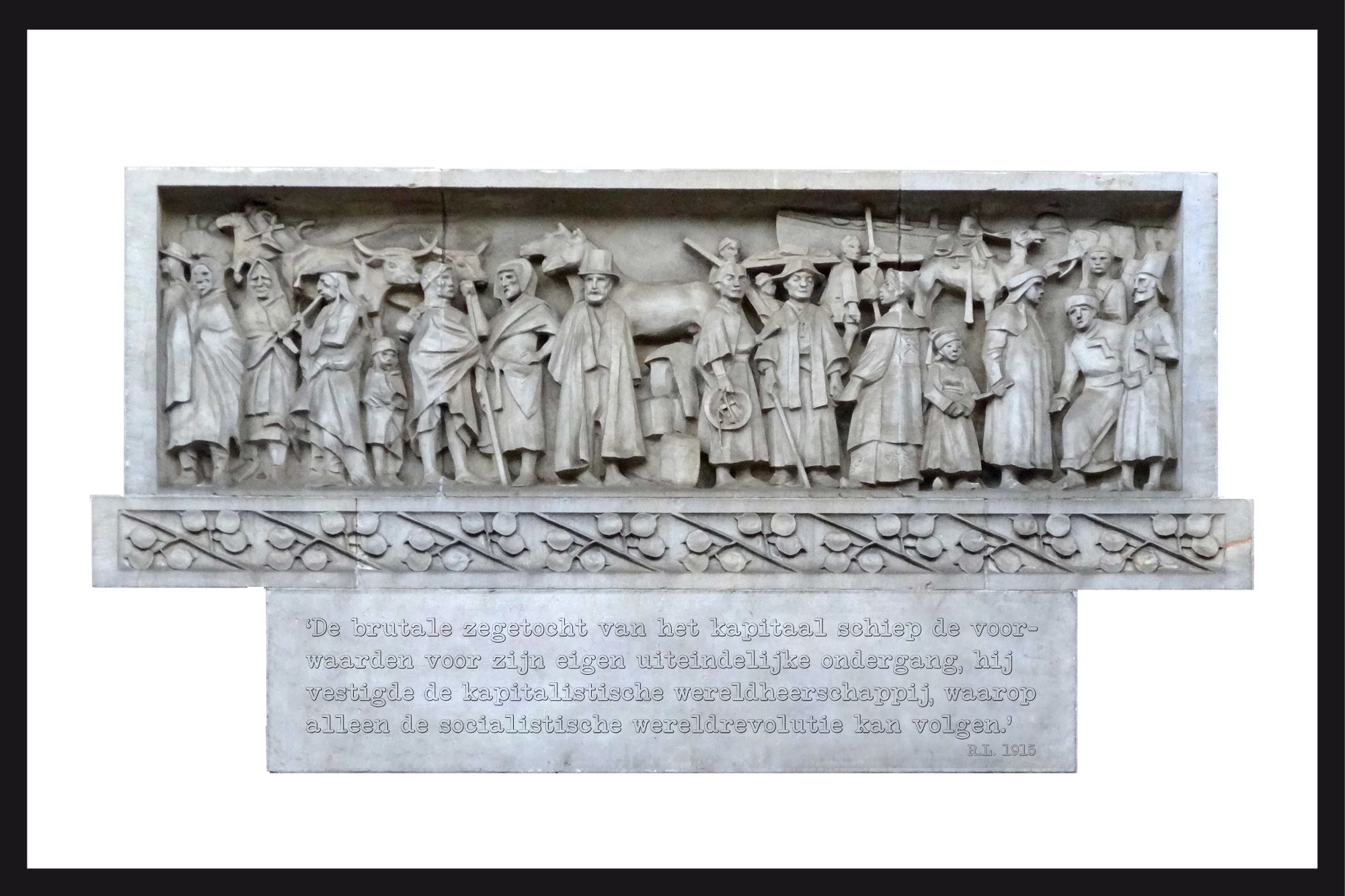UNheard
Translation of the Dutch text – an English version of this installation is available upon request.
Philosopher Hannah Arendt (Germany 1906 - United States 1975) has made a sharp analysis about the rise of totalitarian movements and their appeal to the masses. Many people feel the modern world is unjust and therefore turn against established social organizations such as political parties and labor unions. There is a widespread sense of powerlessness. People want to feel “heard” again.
ONgehoord (UNheard) | installation | neon and rusted iron on aluminium panel | ON turns on and off | 2021 | 59 x 13,4 inch (150 x 34 cm)
This work was created for the exhibition The Weight of Words. Ten artists, the group PhArt, show their view on the life and work of Hannah Arendt.
to read more about this analysis by Hannah Arendt, click here
In recent years, the western world, including the Netherlands, has seen a rise in unprecedented aggressive violence. Unorganized gatherings of angry citizens have led to indiscriminate destruction and looting of railway stations, shops, cars, and more. Large-scale protests by peasants are also becoming increasingly provocative and intimidating. What all these outbursts have in common is that the participants have their own reasons for feeling abandoned by the establishment and angry. They don't feel heard, and there is a widespread sense of powerlessness. Many people feel that the world is unjust.
Hannah Arendt believes that widespread discomfort can lead to the rise of totalitarian movements and their appeal to the masses. A mass is fragmented, consisting of individuals who are no longer part of a group with a shared interest, such as a political party, trade union, or professional organization. People in the mass are politically indifferent, rarely participate in elections, and are hostile to all parties. However, the mass does require a doctrine that provides structure, making it receptive to conspiracy theories that create a common enemy. Mass individuals struggle to distinguish reality from fiction.
This analysis by Arendt is still relevant in light of the outlined developments. It's crucial to take it seriously as people need to feel heard again.
Capital’s Victory March
Capital’s Victory March | edited photo printed on Epson Enhanced Matte on MDF | 19,7 x 27,6 inch (50 x 70 cm) | 2024 | € 750
Image: facade relief Beurs van Berlage (trade building), Amsterdam, The Traffic Lambertus Zijl, 1903
The quatrain on the facade relief is very optimistic in tone. I replaced it with this text by Rosa Luxemburg from 1915, which is more relevant than ever:
'The relentless advance of capitalism led to its own eventual downfall, establishing global capitalist dominion, to be succeeded only by socialist global revolution.'
This work was created for the exhibition Meet Rosa Luxemburg. Twelve artists, the group PhArt, highlight the life and work of this thinker in an exhibition at the International Institute of Social History in Amsterdam.
to read more about this work about Rosa Luxemburg, click here
In 1904, Rosa Luxemburg took part in the Second International, a congress for socialist parties, which was held at the Concertgebouw in Amsterdam. She also had meetings at De Burcht during that time. De Burcht is a trade union building (built in 1900) of the Algemeene Nederlandsche Diamantbewerkersbond (General Dutch Diamond Workers Union) and was designed by architect Hendrik Petrus Berlage.
During her eight-day stay, she undoubtedly also saw the brand-new Beurs van Berlage (1903). It was remarkable that the socialist Berlage was commissioned to build a stock exchange building, as he believed that stock exchange trading was not long-lived. Therefore, he designed a building that, in the future, after the triumph of socialism, could serve as a grand community centre, a 'people's palace'. Moreover, as a Gesamtkunstwerk, it was supposed to stimulate people's spiritual development. His friend and kindred spirit, Albert Verwey, was commissioned to think of wall decorations, sculptures, and reliefs that would create an organic whole with the architectural design.
The "The Traffic" relief demonstrates how international trade, symbolized by boats, goods, and pack animals from all over the world - such as horses, bulls, and camels - encourages friendly relationships between different peoples, including the Chinese, the Arab, and the Westerners. This is seen as a step towards a united Europe and eventually a united world that is fair and equal. In the quatrain below the relief, Verwey articulates this ideal as follows:
(translated from Dutch)
The nature will soon become one: the peoples are like groups
Of the one bond that controls all her globe.
By land, by sea, strives train, strives fleet to the utmost
To the changing goal to which they call each other.
I replaced this quatrain with a text by Rosa Luxemburg from 1915 :
'The relentless advance of capitalism led to its own eventual downfall, establishing global capitalist dominion, to be succeeded only by socialist global revolution.'
She keenly foresaw the repercussions of capitalism. Her vision is still distant, with the relentless advance of capitalism more relevant than ever.


